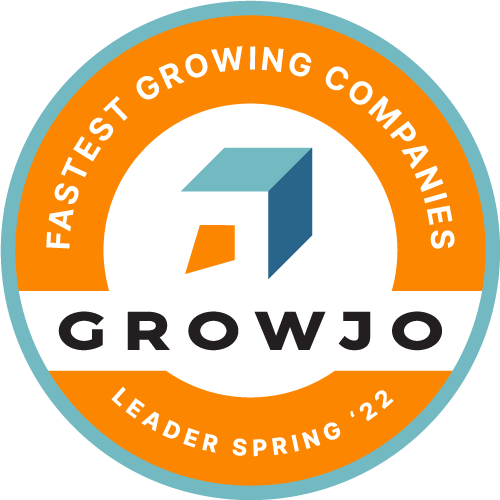How Podcast Marketing Works for Your Growing Business
Podcast has been a buzzword for some time now, and the buzz around podcast marketing is just getting louder. A podcast is an audio file you can make available for download or streaming.
It’s typically done as a series where a host or a panel of speakers talk about the podcast’s topic as a digital series. As of 2021, monthly listeners in the US rose to 116 million users. Why is that?
Podcasting is actually a great tool to grow your business. It’s a great way to create content and connect with your market. Podcasting can even propel your individual status as an industry expert.
Hosting a podcast can help establish your identity and credibility as a source of reliable information and relatable content. Whether you just want to blow off some steam, find like-minded people, or pursue a marketing goal, podcasting is a great tool for anyone, especially business owners.
How Podcast Marketing Works for Your Growing Business:
- The Benefits of Podcasting
- Setting Up: How to Get Started
- Elements of a Good Podcast
- How to Develop a Podcast Strategy
Benefits of Podcast Marketing
Podcasting can open up a lot of opportunities for your business. With an uncomplicated setup, a clear plan, and solid execution, you can reap the benefits similar to other marketing efforts and more.
The following section lists some benefits of podcast marketing which may be very impactful to your business goals.
1. Engage with Newer Audiences
Podcasting allows you to tap into audience groups that you normally wouldn’t reach through your usual channels. Podcast listeners are a unique and large market that is worth reaching out to.
Audience reach is an important number in any marketing effort, making podcasting a solid choice when it comes to expanding awareness about your brand.
2. Drive Organic Traffic
Podcasts are also hugely affected by word-of-mouth marketing. That is when a podcast is strategized into producing content that is shareable and interesting to a focused audience.
Search engine optimization is also used in podcast marketing. As a competitive alternative to blogging and video content, podcasting can also be enhanced with SEO tools.
This drives up organic traffic to your landing site, or whatever online resource you want your audience to be most engaged in.
3. Easy and Convenient to Produce
Compared to producing video content and written content, podcasts can be vastly easier to produce.
With just some research on current affairs and banking on your (and your co-host’s) expertise, you can produce content of substantial length and information. If it comes naturally to you, your content can also be hugely entertaining without much effort.
As for your audience, it’s also a convenient option to gain knowledge. Listening to podcasts is a very hands-off way of consuming content nowadays.
Unlike having to watch a show or read a blog, listeners can perform other tasks while listening to a podcast.
This is evident in studies reporting that more than half of podcast listeners consume shows outside their homes, like at work, while driving, and more.
4. Helps Build Your Credibility as a Thought Leader
Your podcast also allows you to build thought leadership among your listeners.
In a few minutes in a podcast, even in your promotional material, or just the premise of your show, you can immediately showcase your level of expertise on a certain subject matter.
It only builds up your credibility, even more, when you provide deeper insight and critical thinking into what you’re talking about, be it current affairs or something highly relevant to your audience.
The authority you build by showcasing your aptitude could open up a lot of doors for you and your business.
5. Develop and Grow Your Brand
Having a podcast also helps develop and grow your brand. As another channel through which your company communicates to and engages with your market, any online show introduces more of your company’s values to your audience.
Through a podcast, your listeners become more familiar and in touch with your brand’s tone and voice, with your show acting as the embodiment of such. This way, podcasting helps build loyalty to your brand.
Setting Up: How to Get Started
Starting a podcast for your business doesn’t have to be complicated. You’re an entrepreneur so you’re familiar with the steps it takes to create and market a product.
The same concept applies to creating a podcast. Read on to know about how to get started with podcast marketing.
1. Identify Your Audience
Like any marketing strategy, at the core of this operation is your audience. Knowing who you’re talking to through your podcast will guide you in structuring your entire project.
In the same way, children’s shows are targeted to engage children, while dramas are designed to appeal to the emotions of a more mature audience. Identifying who you want to listen to your podcast will help you identify other key factors in your show’s development and marketing strategy.
2. Identify Your Focus Topics
Even if radio shows seem to have DJs just rambling about anything under the sun, it’s still actually structured. As they target the masses, they almost always talk about something popular, be it current events or blasts from the past.
Your focus topics will eventually guide the right audience to your show, then to your brand. If you’re a real estate agent, then you can research topics that are common questions and pain points among home sellers.
Additionally, you can produce content on market updates and trends. Real estate businesses will be able to pull more value from the buyers and sellers specific to their geographic scope.
3. Set Format and Frequency
Based on the identity of your target demographic, you can now set a format and frequency that is to their liking. Your format defines how you will approach a topic in an episode.
Popular formats include solo podcasting, co-hosting, interviewing guests, and panel discussions. You can even further design that uniquely, whether it’s interviews, freeform conversations, or whatever you find best. Your podcast’s frequency sets the interval between episodes.
Some do daily, weekly, or semi-weekly. You’ll also have to consider duration, content design, and other factors. These will all be based on what your decided demographic prefers to consume and build a following towards.
4. Finalize your Podcast's Branding Kit
As this is a project with a goal, you should create a branding kit in order to visually guide your audience to your podcast. Again, this is affected by who you’re targeting to listen to your show.
Your podcast should have a branding kit so that it actually helps your brand be recognized and gain recall as you publish more episodes.
You’ll have to create templates for your promotional material to make it easier and faster to create graphics. You may also want to personalize an intro and an outro.
This also serves as YOUR guide to keeping your podcast’s overall identity, in line with your branding. You’ll have your show’s name, description, focus theme or topic, keywords or phrases, and other relevant collateral that will help position your brand within your audience’s loyalties.
5. Get Your Podcasting Gear
This is a cost center for the production of your podcast. However, it’s definitely worth the investment. You’ll need good equipment to produce a good quality show.
You don’t want to hurt your listener’s ears. You'll want them to be able to focus on your voice and the information and message you’re communicating to them. You want them to feel like they are actually in the room with you.
Essentially, you’ll need at least 1 microphone per speaker or host, headphones, and editing software on your computer for a competent podcast.
Blue Yeti is a popular microphone choice for podcast beginners, together with Audacity. Audacity is a free audio editing platform.
From there, you may build up to a studio that has the best tools and maybe even a camera setup that will appeal to a more visual audience. You can record a video version of your podcast and repurpose it on Youtube.
Elements of a Good Podcast
In everything, greatness has a standard. Podcast marketing for your growing business also has a proper way of being approached. Here are a few things you shouldn’t skimp on when doing a podcast for your business.
1. High-Quality Audio
A good podcast serves crisp, clear, high-quality audio. This includes modulation of loud and quiet moments during editing, ensuring audio doesn’t hit hurtful frequencies and the like.
The quality of your audio is also affected by your delivery and use of tone. Your podcast will be an auditory encounter, so you should be considerate of the listening experience you create for your subscriber.
Modulate your voice, energy, and nuances as you would in a conversation similar to the podcast design you’ve decided on. This helps in nurturing the imagined space where it’s just you and your listener, communicating, and building a relationship.
2. Show Notes
A good practice when producing podcasts is to create show notes for every episode. Show notes are quick write-ups that give a bigger preview of what happened during the episode.
They frequently contain extremely enticing material from the episode, with only enough context to keep the reader interested to listen to your podcast. What’s great about show notes is that it increases the overall experience.
If you only had a promotional invite before, now you also have a preview before they click play on your episode. Even better, show notes can be your tool to incorporate SEO on your podcast project.
This will drive up the organic reach of your podcast as you build your episode list with your community. This is also where you can put your call to action in writing.
Build your show notes by highlighting key takeaways from your episode, referencing external resources mentioned, and inserting your call to action. Convince casual followers to subscribe and tune in, and keep listeners hooked by providing the episode’s resource center.
3. Call to Action
For your podcast, it is recommended that you have a call to action. Primarily, you should ask your audience to leave reviews as often as you can, without nagging.
This helps you calibrate your content best to their liking. At the same time, this helps the right people find your podcast faster and easier. Getting reviews for your podcast is pretty much a free promotion where all you have to do is ask your audience during an episode and in your show notes.
Other calls to action include leaving links and descriptions on your podcast page to your website, to any products or services you may offer, or affiliate links.
4. Structured Content
Your content should be structured. Some hosts loosely or strictly follow a script, while others are able to fully wing an episode.
However, most podcasts will still adhere to a structure. It can be a thematic structure following your entire show’s premise, or just a topic for speakers to speak about during one episode. This gives your audience something to look forward to while you promote your upcoming episodes.
Given that you are doing this for your business, you should carefully plan out how you want to contribute to your goal of establishing thought leadership with every episode.
You may do this by structuring your content around relevant topics and facts. A content calendar built for your podcast can help you stick to your plans.
Similarly, storytelling can be a very engaging way of structuring your podcast. A lot of podcasts follow a narrative for a few episodes or use an assortment of storytelling per episode. This can be a very smart way to capture your audience’s attention by making them anticipate an ending.
Additionally, we tend to more easily remember facts if they are told in a story-like narrative. That’s because they are presented in an emotional way that attaches greater familiarity and meaning to the facts, making it easier for our minds to remember and recall.
Through stories, you may also build a relationship with your audience by beginning an exchange of stories you can continue on social media platforms.
5. External Engagement
In keeping the podcast experience fully engaging, good podcasts exist outside of their episodic structure. Not just through promotional activities, but also through social media engagement.
It’s a genius way to build a community with your audience and their mutual connections who have yet to find out about your podcast.
By liking, commenting, or re-sharing your audience’s updates, you build on their loyalty while setting up a scenario where their mutual connections and your other listeners can join in the active conversation in between episodes.
How to Develop a Podcast Strategy
You now know how to set up a podcast for your business and why. If you’re still reading, then you must be very invested in podcast marketing for your business.
Here are a few tips to help you develop the best strategy to grow your podcast’s reach.
1. Niche Down
Niching down means narrowing down your podcast’s focus topic to something specific to your target market. Through that, you find the right positioning for your podcast.
This is most important in finding the sweet spot in your initially targeted audience. Finding your niche should be one of your goals. From there, you build a strategy to dominate that share of the market and gain the people’s trust and loyalty.
For example, a real estate podcast could niche down and focus on creating content about up & coming neighborhoods. The podcast then helps establish the business’s authority on that topic, making them a top choice for information regarding up-and-coming neighborhoods.
2. Refer to Your Marketing Goals
Before creating your podcast, in the early days of putting up your business, you set your marketing goals. They may have changed or evolved, but you should have them.
As an entrepreneur looking into podcast marketing, you should use your company’s marketing goals as a foundation for building your strategy.
3. Publish and Promote Your Podcast
As part of your journey in finding the best strategy for your podcast, you should publish and promote your podcast on the best and top platforms available. Have it available for download on your website.
Submit your podcast to platforms like Spotify, Apple Podcasts, Simplecast, Buzzsprout, and Soundcloud to make it accessible to more listeners.
You can even create a video version of your podcast to post to Youtube in order to promote the content and put a face to the voice(s) in your podcasts.
If your company also does social media marketing, don’t hesitate to include your podcast in the social media plan. This will help you discover and track where your podcast gets the most traction and attention.
4. Guest Podcasting
Guest podcasting is like guest blogging if you’re familiar with that. Let’s say you invite another podcast host to join you for an episode. They get airtime to introduce themselves, their vibe, energy, and type of entertainment.
The exposure also gives them a chance to introduce their podcast to your audience, helping their promotional activities. That’s a valuable opportunity you can also get if you guest on other podcasts.
Collaborate with podcasts that revolve around similar topics and you’ll get a chance to see what other kinds of people you can pull into checking out your podcast and your brand.
Podcast Marketing for Your Growing Business
Podcasting works as a content platform. A recent report says that 78% of Americans have become familiar with the concept of podcasting, with 10 million people being a huge recent addition.
Podcasts and listeners are growing in numbers still. It’s a very attractive form of digital consumption in the United States and around the world.
Your growing business can hugely benefit from a podcast. In an age where content is king, a podcast is a convenient way to express your brand without having to write formally in long form, prepare a storyboard, create visual effects, or do other creative work.
All you have to do is stick to your plan, bring your personality for flavor, and rinse and repeat. You can even post excerpts or your show notes on your social media. Publishing the transcript is also an easy repurposing tactic.
In content marketing, podcasting is recognized as a very powerful tool. With only a few things to do to get started, you get to create as much content as you like and reach a huge number of people. Build your podcast and start making podcast marketing work for growing your business now.
If you’re interested in podcast marketing but are also struggling to find where to squeeze that into your schedule, a podcast virtual assistant can help you.
Check out how one of our virtual assistants can help you with that in this video. Virtual assistants can help you leverage your business for growth by taking on some essential tasks your business needs.
If you’re interested in getting a virtual assistant for your business, fill out this form and one of our Consultants will get in touch with you.
More Articles From Virtudesk:
Share this article
Meet our Most Trusted
Partners & Clients

Byron Lazine
Co-Founding Chief-of-Operations at BAM (Broke Agent Media)I’ve been using Virtual Assistants for years throughout all of my companies. Once we found Virtudesk the process got even easier and allowed us to scale out our hiring. Highly skilled and accountable professionals. 100% recommend!

Rebecca Julianna James
Realtor / Content CreatorBefore getting started with Virtudesk I had my doubts that they would find what I was looking for. I needed a very particular person to add to my team and let me tell you I am highly pleased! My virtual assistant Myril is the best! I am excited to grow my socialmedia accounts with her. Thank you Virtudesk!

Chelsea Erickson
Realtor La Belle RE GroupI am very happy with the assistance Virtudesk is providing for my real estate business. This is a newer position for my company and we are working through the creation and efficiency.

















